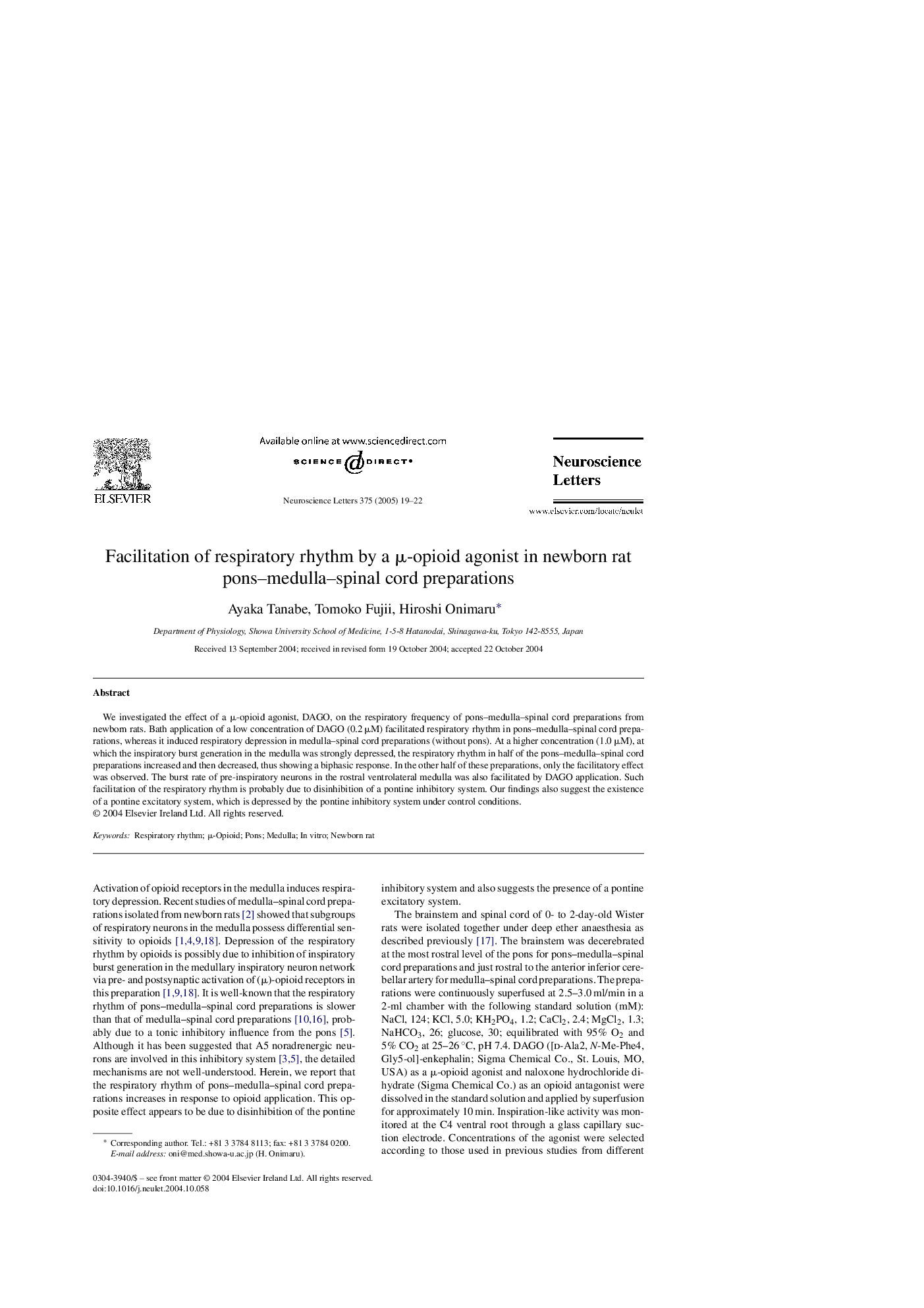| Article ID | Journal | Published Year | Pages | File Type |
|---|---|---|---|---|
| 9429555 | Neuroscience Letters | 2005 | 4 Pages |
Abstract
We investigated the effect of a μ-opioid agonist, DAGO, on the respiratory frequency of pons-medulla-spinal cord preparations from newborn rats. Bath application of a low concentration of DAGO (0.2 μM) facilitated respiratory rhythm in pons-medulla-spinal cord preparations, whereas it induced respiratory depression in medulla-spinal cord preparations (without pons). At a higher concentration (1.0 μM), at which the inspiratory burst generation in the medulla was strongly depressed, the respiratory rhythm in half of the pons-medulla-spinal cord preparations increased and then decreased, thus showing a biphasic response. In the other half of these preparations, only the facilitatory effect was observed. The burst rate of pre-inspiratory neurons in the rostral ventrolateral medulla was also facilitated by DAGO application. Such facilitation of the respiratory rhythm is probably due to disinhibition of a pontine inhibitory system. Our findings also suggest the existence of a pontine excitatory system, which is depressed by the pontine inhibitory system under control conditions.
Related Topics
Life Sciences
Neuroscience
Neuroscience (General)
Authors
Ayaka Tanabe, Tomoko Fujii, Hiroshi Onimaru,
